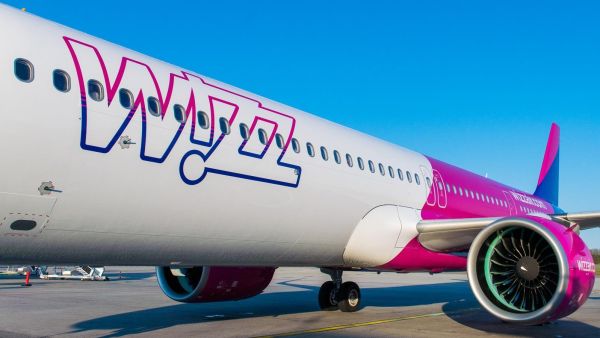ALBAWABA - Wizz Air, one of the world's largest low-cost airlines, has witnessed a decline in demand from neighboring markets to Israel, particularly from Egypt and Jordan, due to the Gaza conflict. According to Wizz Air's CEO and co-founder, József Váradi, the company temporarily suspended its operations in Israel due to the situation. However, demand remained unaffected in Gulf countries like the UAE and Saudi Arabia.
Despite the ongoing war affecting the airline's operations for over a month, Váradi announced record-breaking figures in terms of passengers, capacity, and profitability from April to September. During this period, Wizz Air achieved a net profit exceeding $400 million. Compared to pre-COVID times, the company's global capacity increased by 53%, overcoming challenges posed by geopolitical events, supply chain issues, and engine-related problems.
Regarding Wizz Air's aircraft fleet, it is expected to exceed 200 planes by March 2024, with Váradi anticipating an increase to around 300 planes by 2026. A quarter of the fleet will be deployed in the Middle East in the long run.
Váradi considers Wizz Air's current priority to be expansion in the Middle East, describing it as a fertile ground for aviation. The region attracts substantial investments in the tourism sector, experiences growing migration trends, and is characterized by a burgeoning middle class with high disposable income, enabling them to spend on travel.
Balancing Profitability and Sustainability, Wizz Air stands out as a leading airline in sustainability. According to Váradi, finding common ground between sustainability and economic efficiency is crucial. Aircraft technology plays a significant role in creating this common ground, making fleet operations economically efficient with minimal carbon footprint.
Váradi also highlighted the company's economic and efficient approach to maintaining low ticket prices for passengers. Flight operations start early in the morning and conclude late at night to enhance productivity. Wizz Air directly engages with consumers, bypassing intermediaries, and third parties, thus saving additional costs.







